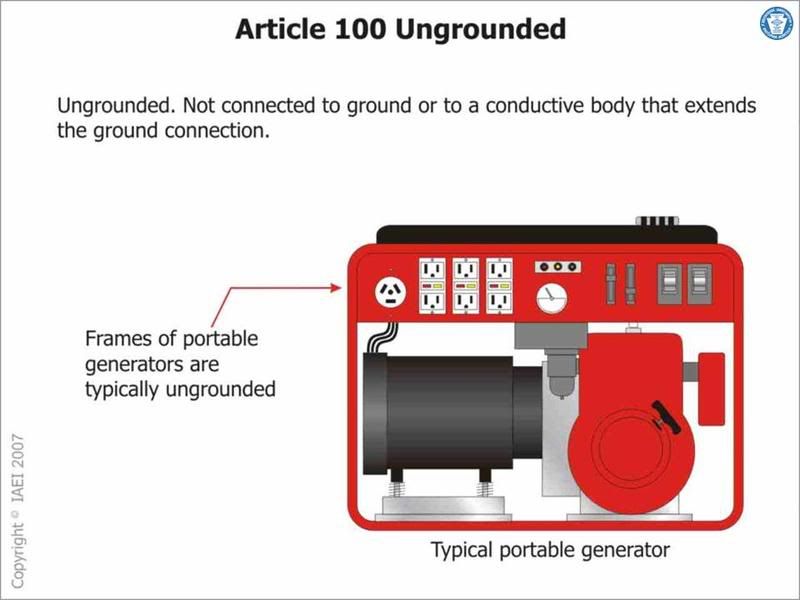- Location
- Illinois
- Occupation
- retired electrician
Trying,
The conflict between the definition is because the definition tells us that the only way to have a grounded system is to have a connection to earth and 250.34 says we don't need that connection to earth for a portable generator.
Don
Sorry, I didn't look at the book...250.50 tells us what systems must be grounded, 250.21 tells us what systems that are permitted, but not required to be grounded, and 250.22 tells us what ones are not permitted to be grounded. I didn't look and my memory told me that all three parts were in one section...If you are saying 250-20 applies to ungrounded systems, specifically where does it address ungrounded systems?
Because the conflict is not with 250.20, it is with the definition and 250.34 for portable generators.Quote:
Originally Posted by don_resqcapt19
If 250.20 requires the system to be grounded or if it permits the system to be grounded and the design requires grounding, then we have a problem with the new definition if the system is supplied by a portable generator.
But you say in the end of your post #36 ?There is no conflict between 250-20 and the definition?, what do you mean above?
It tells us what systems are required to be grounded. All of the commonly used systems are systems that are required to be grounded systems.Where does 250-20 tell me an ungrounded system must be grounded?
The conflict between the definition is because the definition tells us that the only way to have a grounded system is to have a connection to earth and 250.34 says we don't need that connection to earth for a portable generator.
Don

